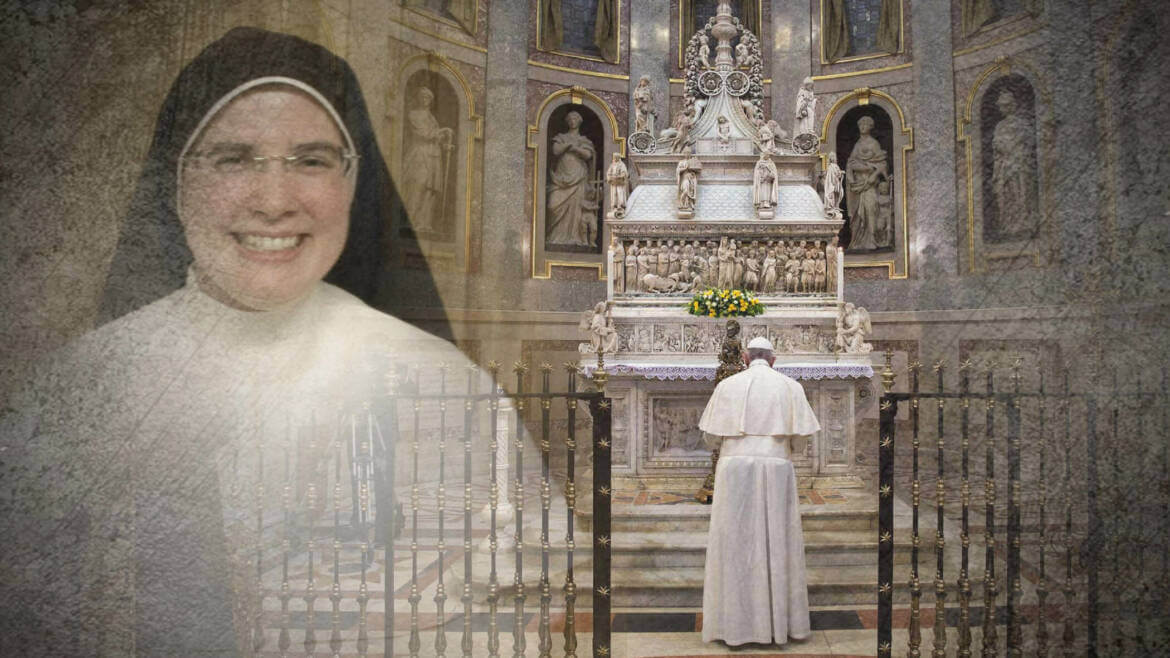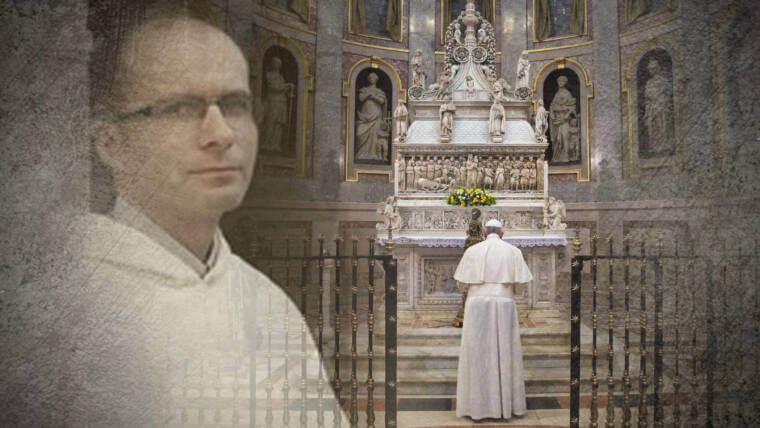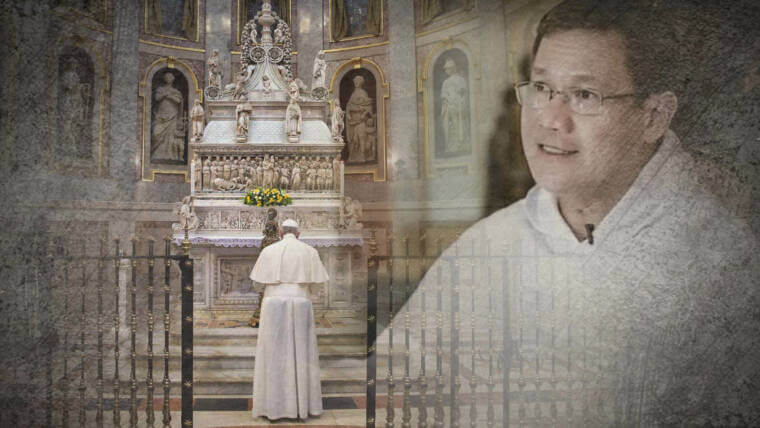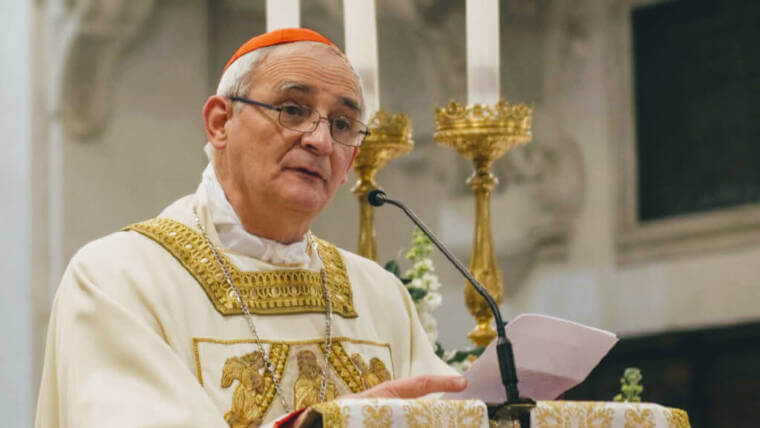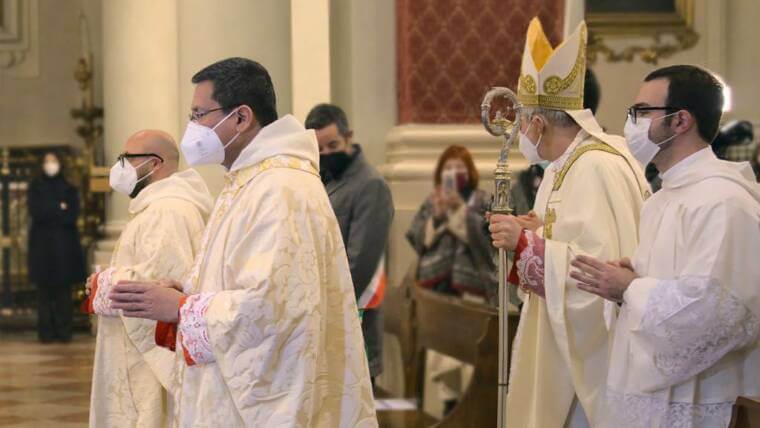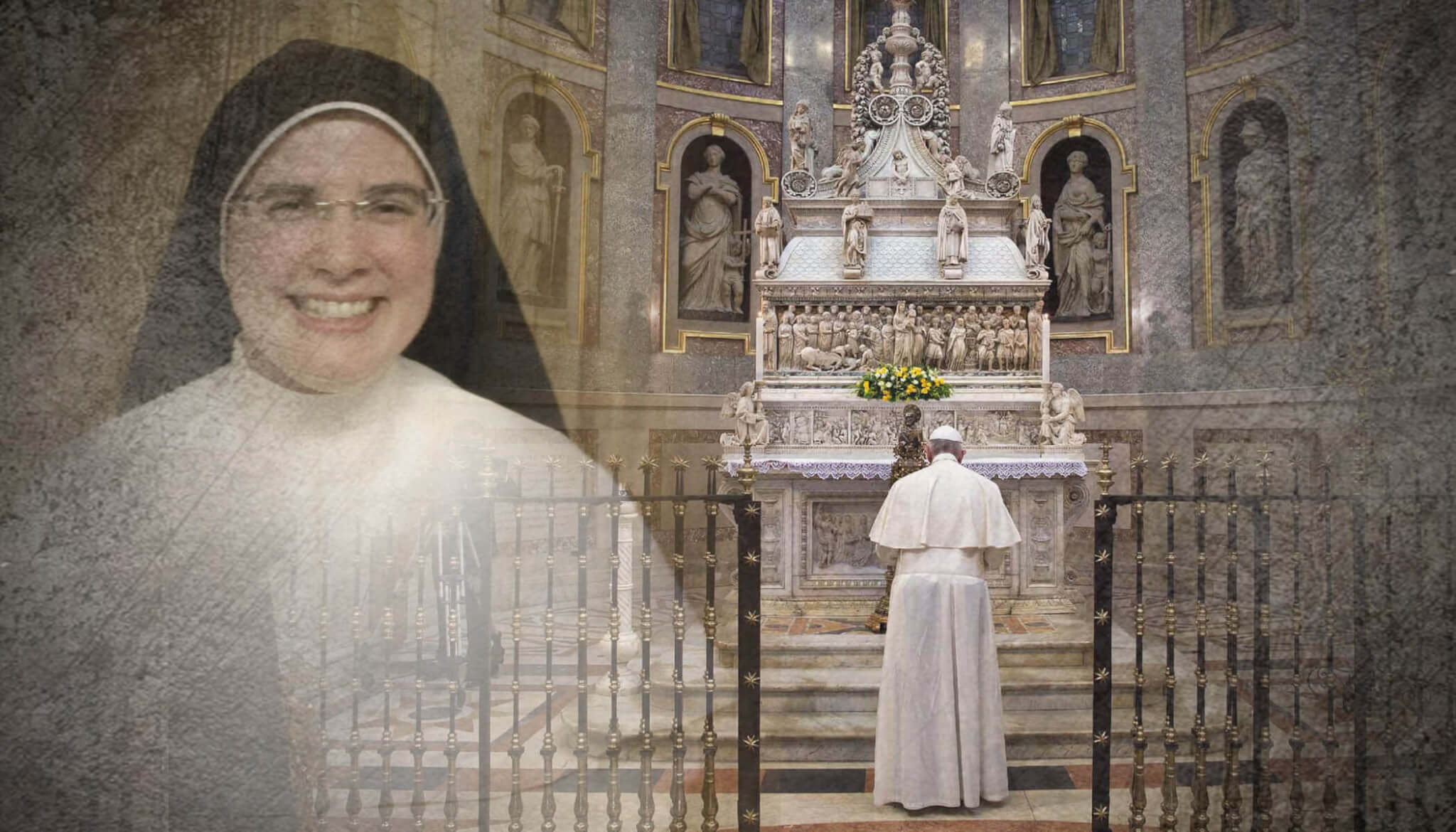
Two phrases from Pope Francis’s Praedicator Gratiae strike me in particular. First, when he says that as a student in Palencia Dominic “came to appreciate the inseparability of faith and charity, truth and love, integrity and compassion.” Secondly, when in speaking of the importance of life in common in the Dominican tradition and how it inspires a “synodal” form of governance, the Pope points to the prophet witness of “evangelical fraternity”—“The witness of evangelical fraternity, as a prophetic testimony to God’s ultimate plan in Christ for the reconciliation and unity of the entire human family.”
“Faith and charity, truth and love, integrity and compassion”—these pairs of virtues, going two by two like the apostles, all imply an objective order, God, and the other, and balance one another out. For faith without charity is dead. Charity without faith is condescension. Love without truth is permissiveness. Truth without charity loses all meaning or becomes a weapon. Integrity without compassion becomes rigidity; compassion without integrity, indulgence. Even the virtues benefit from being together!
It seems to me that the Nuns of the Order live one of the most intense forms of fraternity. After the lockdowns and quarantines of this past year, many have had a glimpse of what living a cloistered life is like. Being together all the time in the same place with the same people can be very challenging. It is easy to fall into cliques and factions and turf wars, making mountains out of molehills and generally getting on one another’s nerves. St. Paul’s exhortation to the members of the Colossian and the Ephesian communities “to bear with one another in love” (cf. Col 3:13; Eph 4:2) rings more and more true as the years go by. Yet we are living together to grow in love. Without the Holy Spirit, this form of life would be truly impossible to live. I believe this corporate fraternal life of the monastery is the main way the Nuns preach. Interestingly, people when referring to the monastery often speak of “the nuns” in plural form.
In the last 20 years the Catholic Church in the United States has been rocked by revelations of the sexual abuse. I have many friends and family whose faith has been badly shaken by these events or who have left the Church. This is not the case of being taught bad doctrine. It is about how the vulnerable and defenseless were treated, authority abused and trust broken. The implicit reasoning is: “How can what you say be true, when you treat people like that?” or “How can an institution be true when it allows this sort of behavior to go unchecked even when it is known and reported?” In reality, we all have a long way to go to bring how we act into harmony with what we say we believe. Fraternal life is where we attempt to do this. In Dominic’s day the opulent lifestyle of the clergy scandalized the laity. Diego, Dominic and their Cistercian companions countered this with a witness of evangelical poverty. If the Church is reeling now with cases of exploitation and abuse, we can counter this with evangelical fraternity. In an individualistic society where it is perfectly acceptable to walk away when things get tough, committed fraternity is countercultural.
One of St. Dominic’s most striking features is his compassion. Even in his private prayer, he brought others with him as witnessed in his nightly cry, “Lord, what will become of sinners?” His love was both particular and all-embracing. No wonder Francisco de Vittoria, with his theory of universal human rights, is his spiritual son. Again, I believe Dominican nuns share in Dominic’s compassion as expressed in his universal intercessory prayer in a special way. Growing up near a Dominican monastery, it used to be something of a family joke that if you wanted to know what was happening in the world listen to the Intercessory Prayers at the Monastery. The nuns would pray about wars and earthquakes and typhoons that we never saw in the newspaper, and this was before the internet! Now I realize that this universal concern of the nuns comes right from our father, Dominic.
Sr. Mary Rose Carlin, O.P.
Monastery of the Infant Jesus
Lufkin, Texas, USA
Read other reactions to Prædicator Gratiæ: Letter of the Holy Father to the Master of the Order of Preachers for the 8th Centenary of the death of St. Dominic of Caleruega
- fr. Gerard Timoner – Prædicator Gratiæ and the Grace of Preaching in the Church
- fr. Viliam Doci – St. Dominic Between Center and Periphery
- fr. Gianni Festa – A Holiness to be Rediscovered: St. Dominic of Caleruega and the Grace of Preaching
- fr. Carlos Azpiroz – Echoes of the Letter Prædicator Gratiæ almost from the Ends of the Earth
- fr. Bruno Cadoré – In gratitude for Pope Francis’ Letter Prædicator Gratiæ
- Sua Ecc. Socrates Villegas – His Beautiful Feet!
- Mr. Gabriel Silva – Perseverance in Fidelity to Our Founding Charism
- sr. Lucia Ngaba – Called to Respond to the Needs of Our Age
- sr. Rosa Lee – The Power of Contemplation
- sr. Irene Diaz – Overflowing with the Joy of the Gospel
- sr. Lioba Hill – One Soul and One Heart in God
- sr. Hyacinthe Defos du Rau – Grace and Unity



